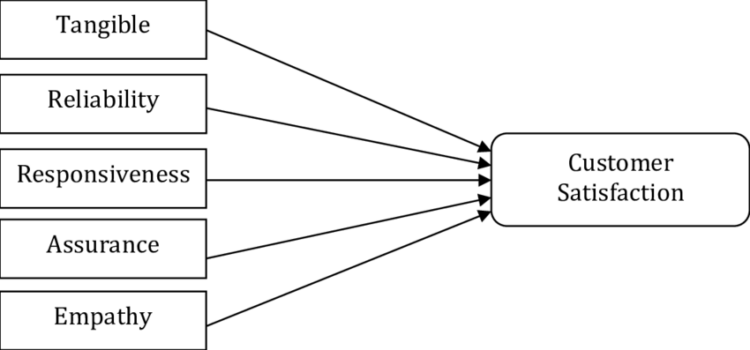Knowing the customer(s) is the key to a successful customer service as the idea is to create, deliver and communicate superior value. The service and/or products offer should answer to the needs and demands. Customers are the most important people for any organization. They are the resources upon which the success of the business depends. Understanding customers are necessary not only because of their effect on marketing decisions but because customers’ activities influence the entire organization. When thinking about the importance of customers it’s useful to remember the following points: Repeat business is the backbone of selling. It helps to provide revenue and certainty for the business; Organizations are dependent upon their customers. If they do not develop customer loyalty and satisfaction, they could lose their customers; Without customers the organization would not exist; The purpose of the organization is to fulfill the needs of the customers; The customer makes Continue reading
Services Marketing
Services Marketing Mix – The 7 P’s of Services Marketing
Marketing mix is the key concept in the marketing task. It is the strategy used to perform marketing functions. Marketing mix is the planned package of elements which will support the organization in reaching its target markets and specific objectives. The common factor behind all the elements of marketing mix is that they are specific parameters which the marketing manager can exercise some control over, within the constraints of their firm’s resources. For example, the marketing manager can control the type of product to be developed, subject to the firm’s technology, as well as the places it is sold, subject to the firm’s distribution network. Ultimately, the aim of the marketing mix is to ensure that all P’s are focused on the target customers, serving their needs and creating value for them Elements of Services Marketing Mix The services marketing mix is also known as an extended marketing mix and Continue reading
Services Marketing Triangle
A service is any act or performance that one party can offer to another that is essentially intangible and does not result in the ownership of anything. Its production may or may not be tied to a physical product. Furthermore, service marketing can be defined as the marketing of activities and processes rather than objects. As services are mainly intangible products, they face a host of services marketing problems that are not always adequately solved by traditional goods-related marketing solutions. Services Marketing Triangle The services marketing triangle was created to handle the complexity that service marketers face when dealing with intangible products. The service marketing triangle highlights three key players, these are; Company: The management of a company, including full-time marketers and sales personnel. This is enabled through continuous development and internal marketing with their employees. Employees: This includes anyone that is working within close contact of the consumer. They Continue reading
Service Quality
Definition of Service Quality There are a number of different “definitions” as to what is meant by services quality. In its simplest form service quality is a product of the effort that every member of the organization invests in satisfying customers. In its broadest sense service quality is defined as superiority or excellence as perceived by the customer. More especially service quality has been defined as: The delivery of excellent or superior service relative to customer expectations. Quality is behavior – an attitude – that says you will never settle for anything less community, your stockholders or colleagues with whom you work every day. When we want to be effective – delivering good quality to the customer – we must produce services that meet “as much as possible” the needs of the consumer. Quality is providing a better service than the customer expects. One that is commonly us defines services Continue reading
Consumer Decision Process In Services Marketing
Knowledge of the Buyer In buying decisions many times other people also influence the decision. In services these roles are played by many persons. In purchase of any service six distinct roles are played. They are; Initiator : The person who has a specific need and proposes to buy a service Influencer : The person or group of persons whom the decision maker refers to or who advice the decision maker Gate Keeper : The person or organization or promotional material, which act as filter on the range of services which enter the decision choice Decider : The person who makes the buying decision Buyer : The person makes the actual purchaser User : The actual user. Consumer Decision Making Process in Services Marketing The consumer’s decision to purchase or reject a product or service is the moment of final truth for the marketer. It signifies the marketing strategy has Continue reading
10 Trends identified in the Service Sector in 21st Century
At the beginning of 21st Century, special issues have developed in area of marketing due to drastic changes in business environment and intense competition that has compelled the marketers to change the way of doing business. Marketing is changing and that’s obvious. The focus of marketing has widened from the classic product, price, and place, promotion to incorporate the yield management, customer experience and customization that necessitates marketer to concentrate on issues such as processes, people and consumer insight. Escalating customer’s demands, development of technology, increasing competition, increasing consumerism all have been main causes that led strategic change in marketing. Service sector in post industrial economies is facing unprecedented changes. Service marketing in 21st century is all about achieving return on investment (ROI) and relationship (ROR), retaining customer and increasing customer lifetime value. The changing role of marketing in service sector demands efficient and effective management of customers, channels, markets Continue reading



